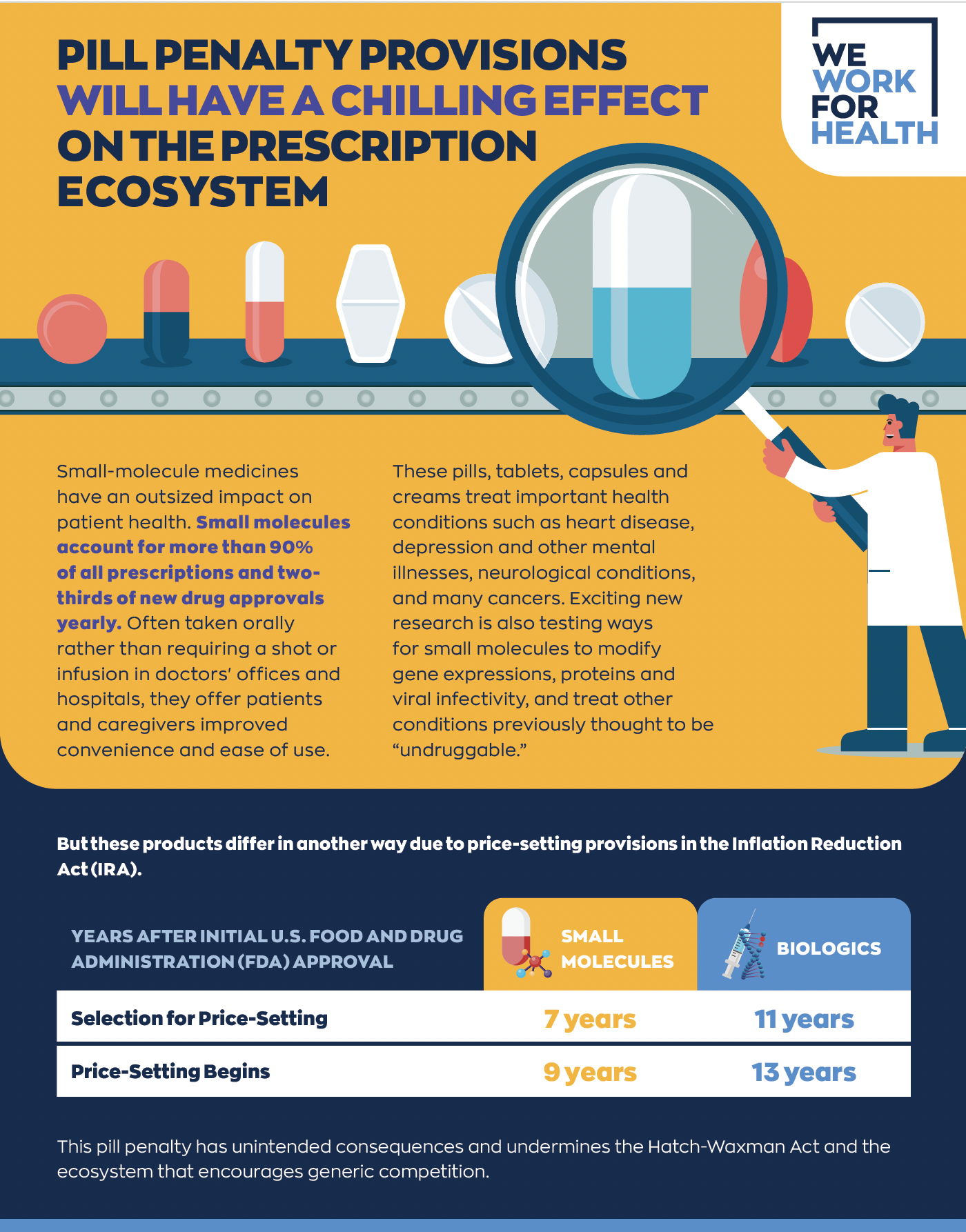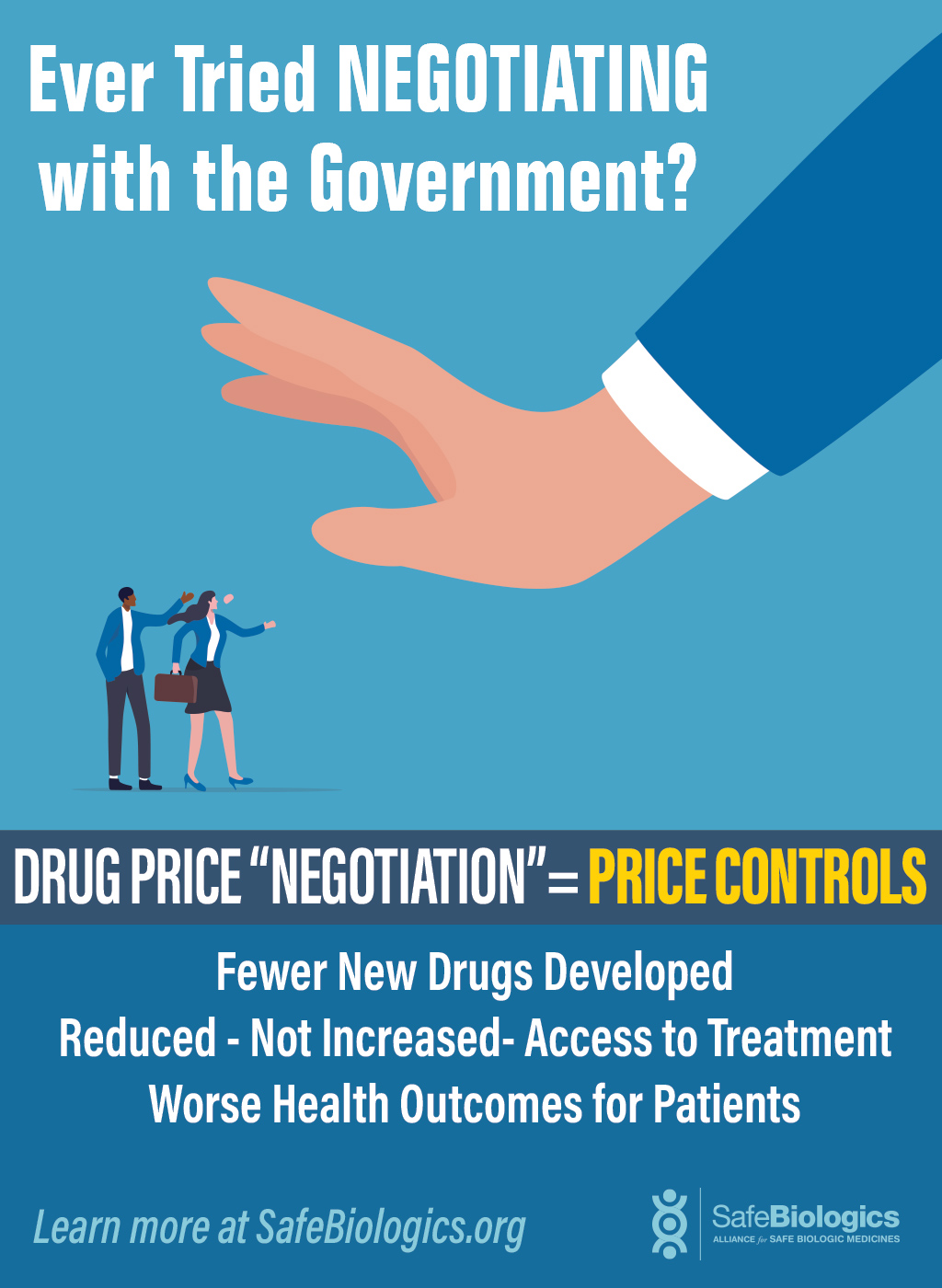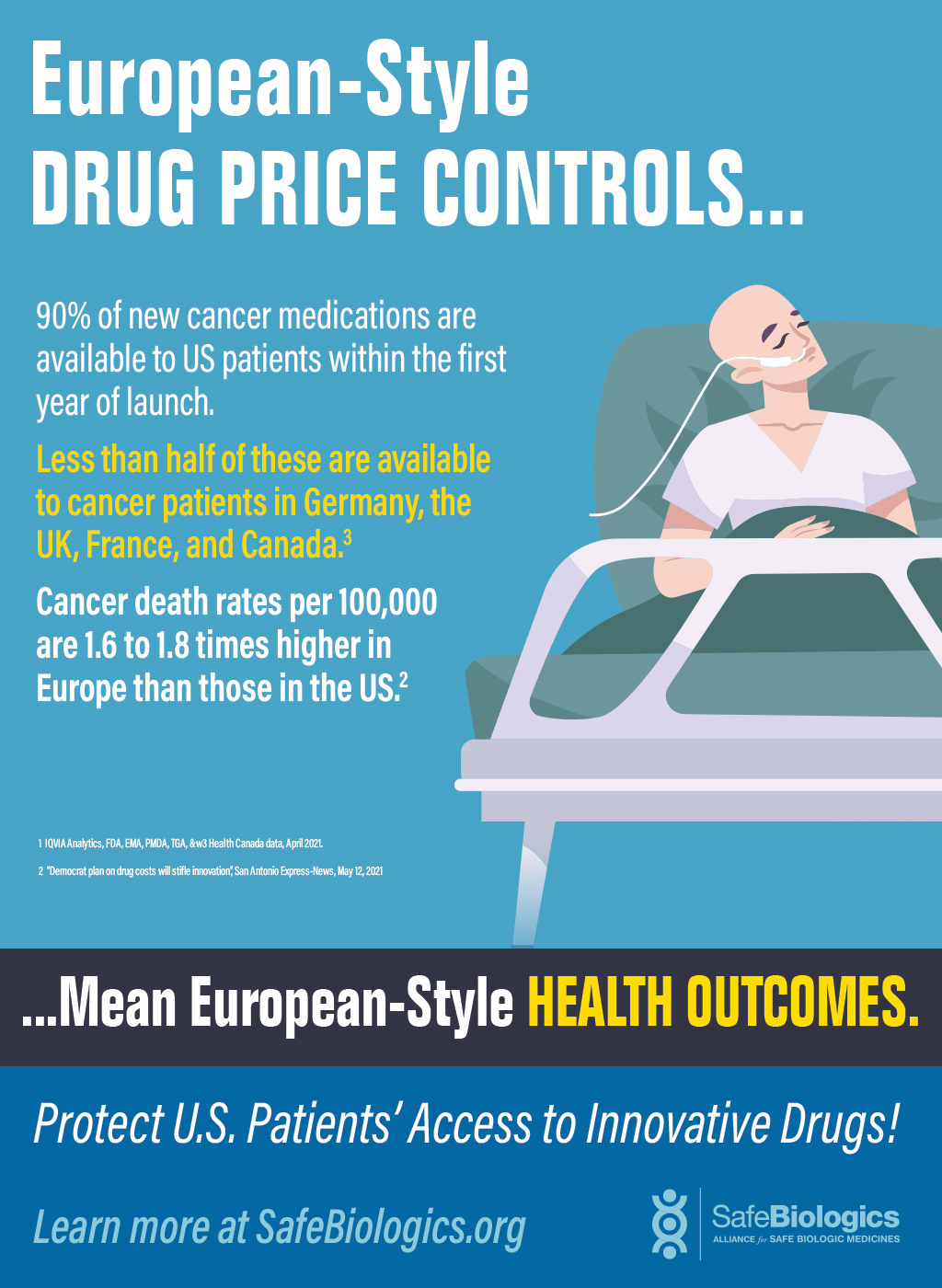How Government Price-Setting Hurts Patients
Enacted in 2022, the Inflation Reduction Act (IRA) jeopardizes drug development and patient access to critical treatments, notably through its Medicare “price negotiation” provision, which is effectively government price-setting. Europe’s experience with similar policies led to a collapse in drug development and worse health outcomes including significantly higher cancer mortality rates. Consequently, numerous patient advocacy groups are opposing the implementation of government price-setting in the U.S.
Latest News
CMS Doubles Down on Medicare Drug Price Controls, Threatening Patient Access and Innovation
The Centers for Medicare & Medicaid Services (CMS) has announced an additional 15 drugs that will be subject to price controls under the Inflation Reduction Act (IRA). This expansion continues a flawed policy that threatens innovation and jeopardizes patient access to critical treatments, including drugs vital for cancer treatment and popular new weight loss medications that have transformed the management of obesity and related conditions.
ASBM Comments to CMS Opposing IRA’s Medicare Part D Redesign
“It is ASBM’s position that patients should have access to innovative medicines, and that biosimilars are an important tool to expand access by creating cost savings through market competition.”
Biden’s Inflation Reduction Act Unravels Medicare Part D
Here are four reasons Medicare drug-price “negotiation” in NJ isn’t truly a negotiation.
How IRA Price Setting Disccourages Biosimilar Development
The Inflation Reduction Act’s First Potential Impact on Biosimilars
The Inflation Reduction Act – Implications for Biopharma Companies and Patients
“ASBM fears that the downstream effects of broad government price setting will ultimately reduce consumers’ choice of plans and formularies in Part D—aspects considered to be hallmarks of the program.”
In the NEws
Resources
Learn more about IRA price controls and spread the word with these print and digital materials.
PILL PENALTY PROVISIONS WILL HAVE A CHILLING EFFECT ON THE PRESCRIPTION ECOSYSTEM
March 2025
Small-molecule medicines have an outsized impact on patient health. Small molecules account for more than 90% of all prescriptions and two-thirds of new drug approvals yearly.
Emerging Value in Oncology
July 2023
How ongoing research expands the benefits of oncology medicines
Lilly Sidelined Three Drugs Due To IRA, CEO Ricks Says
Eli Lilly & Co. CEO David Ricks highlighted how Medicare drug price negotiation policies are already impacting R&D investment during a J.P. Morgan investor call.
Download PDF
Media
KOL Conversation: The Impact of the IRA on Oncology Patient Care
Features an interview with Dr. Barbara L. McAneny, MD, FASCO, MACP Former President for the American Medical Association and the New Mexico Medical Society (NMMS); and currently CEO, New Mexico Cancer Center.
With Dr. Steve Potts CEO, Anticipate Bioscience
May 26, 2023








